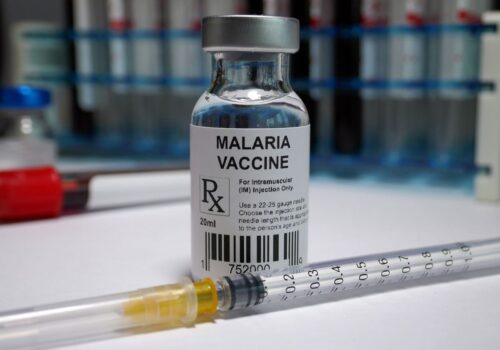 Nigeria has marked a significant milestone in its fight against malaria with the receipt of 846,000 doses of a revolutionary malaria vaccine, positioning the country as the third African nation to introduce the RTS,S/AS01 (Mosquirix) vaccine following Ghana and Kenya.
Nigeria has marked a significant milestone in its fight against malaria with the receipt of 846,000 doses of a revolutionary malaria vaccine, positioning the country as the third African nation to introduce the RTS,S/AS01 (Mosquirix) vaccine following Ghana and Kenya.
Prof. Muhammad Pate, Coordinating Minister of Health and Social Welfare, announced the development during an event in Abuja on Thursday, emphasizing the vaccine’s crucial role in reducing malaria-related deaths in a country where 97% of the population is affected by the disease.
“Our target is to prioritize regions most affected by malaria, particularly in rural areas where access to healthcare is limited,” Prof. Pate stated. The initial rollout will focus on Bayelsa and Kebbi states, selected for their high malaria burden and unique logistical challenges.
Dr. Muyi Aino, Executive Director of the National Primary Health Care Development Agency, highlighted the specific challenges in Bayelsa’s riverine areas but expressed confidence in the strengthened healthcare systems and enhanced cold chain capabilities to reach isolated communities.
The vaccine implementation is supported by several global health partners, including WHO, UNICEF, and Gavi. Dr. Eduardo Celades, UNICEF Chief of Health in Nigeria, noted recent infrastructure improvements, including a tripled storage capacity at the national cold store in Abuja and doubled cold chain infrastructure nationwide.
“We are confident that this vaccine, in combination with other preventive measures, will drastically reduce the burden of malaria in Nigeria and help us move closer to achieving the goal of a malaria-free Africa,” said Dr. Walter Mulombo, WHO representative in Nigeria.
The vaccination program aligns with Nigeria’s National Malaria Strategic Plan (NMSP) 2021-2025. The country’s primary malaria vectors include Anopheles coluzzii and Anopheles gambiae, with Anopheles funestus as a secondary vector in some areas.
Prof. Gbenga Mokuolu, National Coordinator of the National Malaria Elimination Programme (NMEP), while celebrating the vaccine as a game-changer, emphasized that it should be complemented with sustained healthcare infrastructure investment and public education.
“The vaccine is not a magic bullet,” Mokuolu cautioned. “Sustained efforts, including awareness campaigns and improved healthcare delivery, will be key to ensuring that the benefits of the vaccine reach every corner of the country.”
USAID and other partners are advocating for rapid scale-up beyond the initial two states, aiming for nationwide coverage. With proper infrastructure, political will, and continued international collaboration, Nigeria appears well-positioned to make substantial progress in its malaria elimination efforts.

Rivers Assembly Begins Impeachment Proceedings Against Fubara
Gunmen Attack Old Oyo National Park, Casualties Feared
Court Grants Malami ₦500m Bail In Alleged Money Laundering Case
Death Toll In Yobe Boat Mishap Rises To 29, Search Ongoing For Missing Passengers